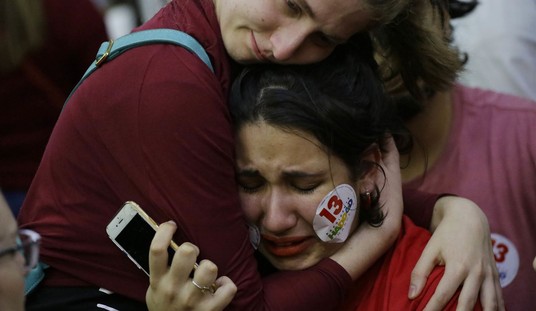His real name is Juan Esteban Aristizábal, but he’s better known by legions of Latino pop-rock fans as “Juanes.” Originally from Colombia, the successful entertainer has called Miami home for the last seven years.
And it’s in Miami where he’s sparked a polemic debate about art, music, and politics.
Juanes recently announced that he’d be playing a concert in the name of peace. The concert is set to take place in Havana on September 20.
Such events have always been a sore spot among Miami’s Cuban exile community, who fled the island’s totalitarian dictatorship. True to form, Juanes has been denounced on local TV and radio for his participation in what most Cuban-Americans see as an exercise in pro-dictatorship propaganda. For his part, Juanes claims to be apolitical — despite making on-the-record remarks praising Fidel Castro.
Nobody debates the artist’s right to go to Cuba and perform for Cubans, and I don’t begrudge the Cuban people who would enjoy such a concert, but Juanes has to be very naïve or very cynical to claim that such a performance is not an endorsement of the longest-running and most cruel dictatorship in the history of the Western Hemisphere.
Juanes insists that the idea for the concert was his and that he was not invited by the Castro regime — a claim that is not believable on its face. The planned concert smacks of pre-calculated political theater. In a Stalinist dictatorship like Cuba, there is no private space for musicians to perform. And certainly no private function is going to take place in Havana’s “Plaza of the Revolution,” where the concert is planned. The very name of the venue and its history as a gathering place for Fidel’s compulsory anti-American harangues nullifies Juanes’ claims of political neutrality.
Simply stated, no foreign artist (or Cuban for that matter) gets permission to play such a concert in Cuba without the approval of the regime. It is by a definition a mutual endorsement.
In the past, musicians have used their high profiles to advocate for peace, human rights, and against dictatorships, and in almost every case the dictatorships they protested were of the right-wing variety. I find it hard to believe that Juanes would play such a “peace concert” for Augusto Pinochet in Chile or for the white Afrikaner government of South Africa if either was in power today.
Why is it that musicians can get away with such utter hypocrisy? They play both sides against the middle, claiming to be artists whose work rises above politics while at the same time being blatantly political.
They get away with it, frankly, because most people don’t care.
During the 1980s, many musicians joined together to fight apartheid in South Africa and denounce dictatorships like Pinochet’s in Chile. Chief among them was Sting, the lead singer and bassist of The Police. Sting became an ambassador for Amnesty International, and The Police played a big part in the organization’s “Conspiracy of Hope” tour.
But hardly an eyebrow was raised when Sting took a holiday in Cuba, a country that has consistently been denounced by Amnesty International for its human rights abuses.
When The Police reunited in 2007 for a world tour, the band announced that it was planning a concert in Havana similar to the one Juanes now intends to play. But when The Police arrived in Miami they were confronted with a public that saw through their hypocrisy. A candlelight vigil was held by Cuban democracy advocates the night before the concert, and the day of the concert a banner flew over the stadium reminding Sting and his band mates that the conditions they once denounced in Chile continue to exist in Cuba today.
Maybe they realized the folly of their ways, or maybe they simply were advised against following through, but the Havana concert never took place.
I suspect that Juanes will not be as smart. Despite claiming to be aware of how hurtful such a concert in Havana will be to his Cuban-American neighbors in Miami, he continues to insist that the show will go on.
And to add insult to injury he will share the stage with regime-approved acts like Silvio Rodriguez and Amaury Perez. The former is a member of Cuba’s communist “parliament” and the latter is a disgusting figure who in 2003 signed a letter in which he agreed with the death sentence for three men who attempted to steal a boat in a desperate attempt to reach freedom. The men were tried and killed within 72 hours.
Is this the “peace” that Juanes wants to sing about?









Join the conversation as a VIP Member